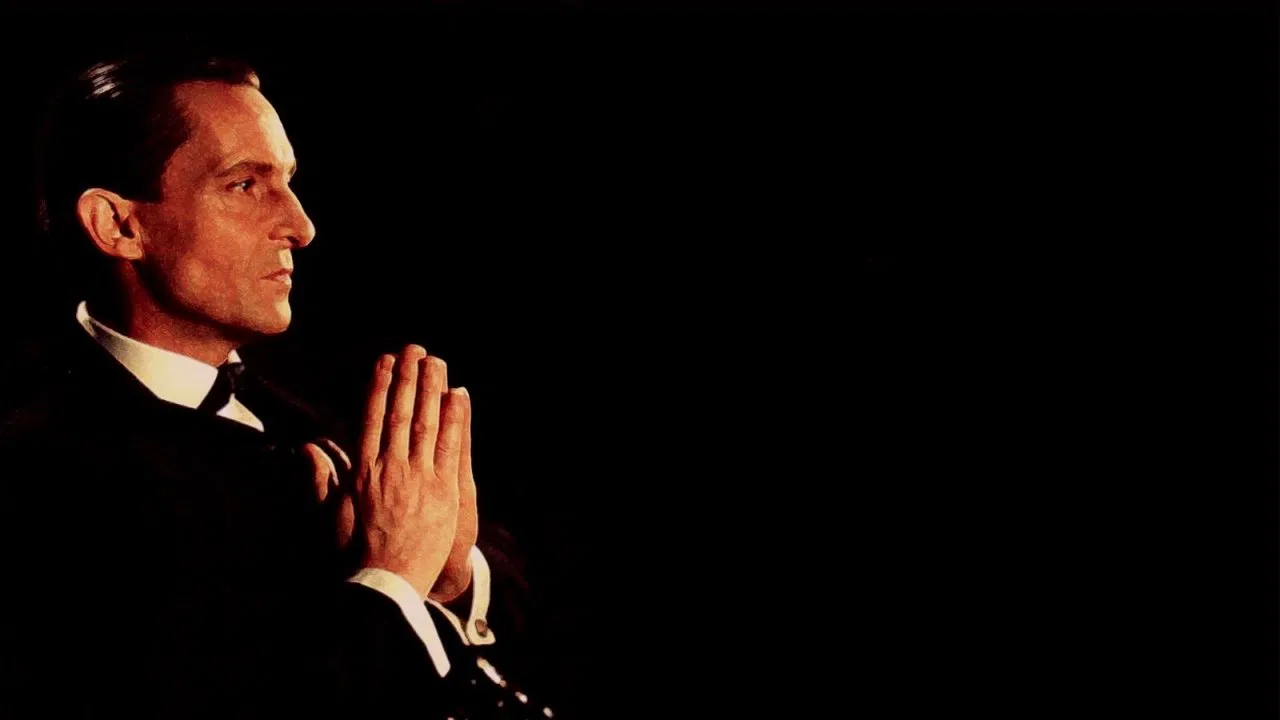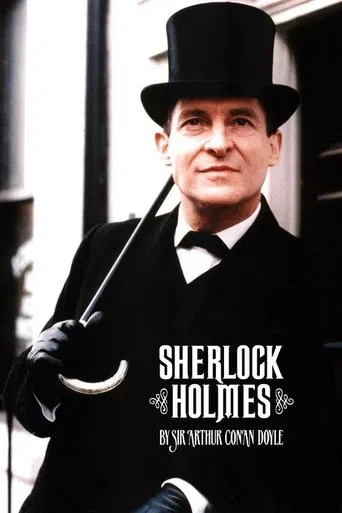

"The Adventures of Sherlock HOlmes" and the first half of "The Return of Sherlock Holmes" are the apogee of Holmes on film (including TV). Before Brett and Burke, too often Holmes was a winsome genius (think the almost perfect Basil Rathbone) while Watson, for more screen time, was increasingly buffoonish (think Nigel Bruce). Holmes was almost like Watson's keeper.Brett and Burke were Holmes and Watson as a team. After this, as Holmes lurched toward Robert Downey, Holmes' flaws, especially regarding drugs and misanthropy, are played up so that the eminently sensible Watson seems more like Holmes' keeper.Not only are the Brett/Burke/early Hardwicke Holmes shows the best balance between the two characters, early on they are incredibly atmospheric and evocative of the period. And, for the most part, aside from a few technical changes in the shift from one medium to another, they are the most accurate.But the makers of "The Adventures" made a fundamental bloomer, no doubt for ease of storytelling. In the second recorded Holmes story, Watson got married and moved out. It is quite common for two young people of the same gender to live together while they are making a way in the world, to share expenses (in fact, in the Victorian era, it would have been unthinkable for people of Holmes' class to share lodging with a female). Holmes was just starting out and Watson was invalided out of the service on half-pay, with no other profession. But for greater facility for storytelling, most Holmes presentations show two middle-aged bachelors living together in one set of rooms, which is hardly accurate. And this is a great problem in telling the story "The Final Problem."In the original story, Holmes and Watson have not seen each other for some time (Watson has a successful medical practice). Holmes shows up in the good Doctor's surgery much worse for wear, and tells the story of the attacks on his life, and about Moriarty (about whom Watson knows nothing).Here, the way Watson is introduced to Holmes' condition is ridiculous. And there's lot of padding and a wholly anachronistic imagining of Holmes' involvement when the Mona Lisa was stolen (in 1911,though this story is set in the early 1890s) that is more like pastiche than Arthur Conan Doyle (who, admittedly, at his worst, was like a pastiche of himself).However, once Holmes and Watson FINALLY catch their train, the show gets back on the rails, so to speak.It's still head and shoulders above any other Holmes adaptations before (with idiot-Watson) or since (with astrung-out, anti-heroic Holmes who can barely care for himself). And the Swiss shots are beautiful. But the shaky first half comes from eschewing the literary accuracy that otherwise is the hallmark of this series. Very sub-standard. I was even left unimpressed by the much-vaunted fall at the falls.
... View MoreI read my first Sherlock Holmes stories when I was a little boy, I saw the great Peter Cushing in "The Hound of the Baskervilles" when I was a teenager, and then Basil Rathbone, Robert Stephens and Christopher Plummer, all which were very good in different degrees. But it was the late Jeremy Brett (the posh Freddy Eynsford-Hill in "My Fair Lady", can you believe it?!- who, to this day and in my most sincere opinion, has played the best Sherlock Holmes ever. Now every time I re-read Doyle's stories, I can not picture anyone else in my mind but Brett as the great detective. I can hear his voice and see his gestures, and with all my respects to all the others who preceded him, Mr Brett shall remain my favourite Holmes ever, with his outbursts of temper, his sudden enthusiasm at the challenge of a new case, his cynicism, his drug-addition and his vanity, but also his sense of human justice that sometimes stand above the law. He shows Holmes' virtues and faults as a human being, and can be as admirable as pompous and even irritating at times, like any human being can be. In my opinion, he perfectly captures Holmes' psychology. Not long ago I acquired the DVD set of the excellent TV series made by Granada between 1984 and 1995. In the first season, David Burke makes a clumsy, bit foolish and humorous Dr. Watson. Then he was replaced by Edward Hardwicke, who brought a more gentler side to the character, a bit more self-composed and equally lovable. And Colin Jeavons as foolish Inspector Lestrade of Scotland Yard, a pompous inept ass who is always fun and one of my favourite characters in the series. It is a real pity that the death of Jeremy Brett in 1995 brought an end to this magnificent series. And then a few months ago, I learnt with sadness that Edward Harwicke had just also passed away. I would like this review to be a little tribute to the two of them, for all the cosy entertaining evenings they have given me. Thank you.
... View MoreI cannot praise this masterpiece of a series enough. There is absolutely nothing wrong with it whatsoever. In fact every one of the Sherlock Holmes are superb, but this is the definitive one.The plots are in general true to the books, which are just as excellent, save a couple of wholly forgivable liberties. The scripts are sharp, classy and sophisticated, and all the adaptations have a certain atmosphere to them, and that is exactly what I want. The music is just outstanding, not only beautiful but very haunting, and the background music is rich and just adds to the atmosphere of the series. And the scenery, camera work and costumes are flawless.As for the acting, one word, superlative. Jeremy Brett is without doubt the best Sherlock Holmes ever, he is just perfect as the character. He is true to the character of the books, while making some subtle differences along the way. This is all to do with interpretation, and where I am concerned, this is one masterful interpretation of a truly complex character. David Burke is suitably intelligent as Watson; while I am more familiar with Edward Hardwicke, Burke is just as good. Many great actors and actresses have come and given memorable appearances, and I cannot decide who impressed me most, because they were all great.All in all, an absolute must-see. It is a television masterpiece. 10/10 Bethany Cox
... View MoreI read all of the Sherlock Holmes stories at once this past year. It was the perfect reading experience--the books I read were reprints of the original magazine editions, down to the illustrations and the name Conan Doyle without "Sir Arthur" looming in front. Doyle amazed me by making Sherlock & Watson my contemporaries. The stories leapt over the decades, over the differences in fashion (wardrobe, philosophy, & vocabulary) to show me these were just a couple of guys sharing an apartment, one of whom being rather eccentric.Adaptations of literature can deeply offend me. My disgust over The English Patient hasn't died down yet (story and various emphases, not cinematography or acting), for instance. Therefore, after Doyle had made Sherlock so real to me, I didn't believe there would be a portrayal that didn't anger me. At the same time, I had finished all of the stories, and Doyle being long dead, there would be no more. So when my honey discovered some episodes online, I gave some a try.Jeremy Brett brought together important physical characteristics, the desire and intelligence to bring the character to life, and the acting capability to actually do so. Supported by exceptional writing, with changes only to the point of necessity given media constraints. Brett even added gesture and expression not mentioned in the story, yet fitting as well as if they were.Fans of the stories should not hesitate to watch this series given the opportunity. Even more, fans of the shows would gain to read the stories because of the greater elucidation of deductive principles.I actually gave it a ten.
... View More